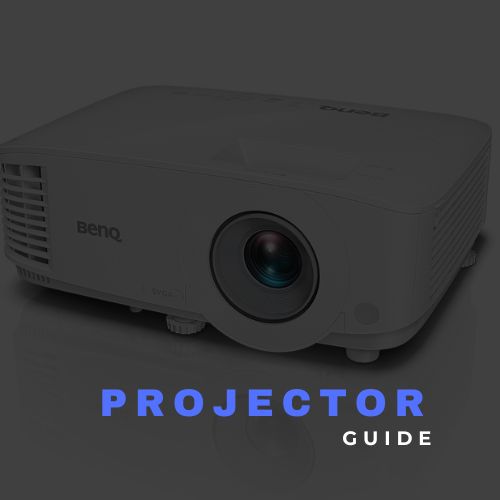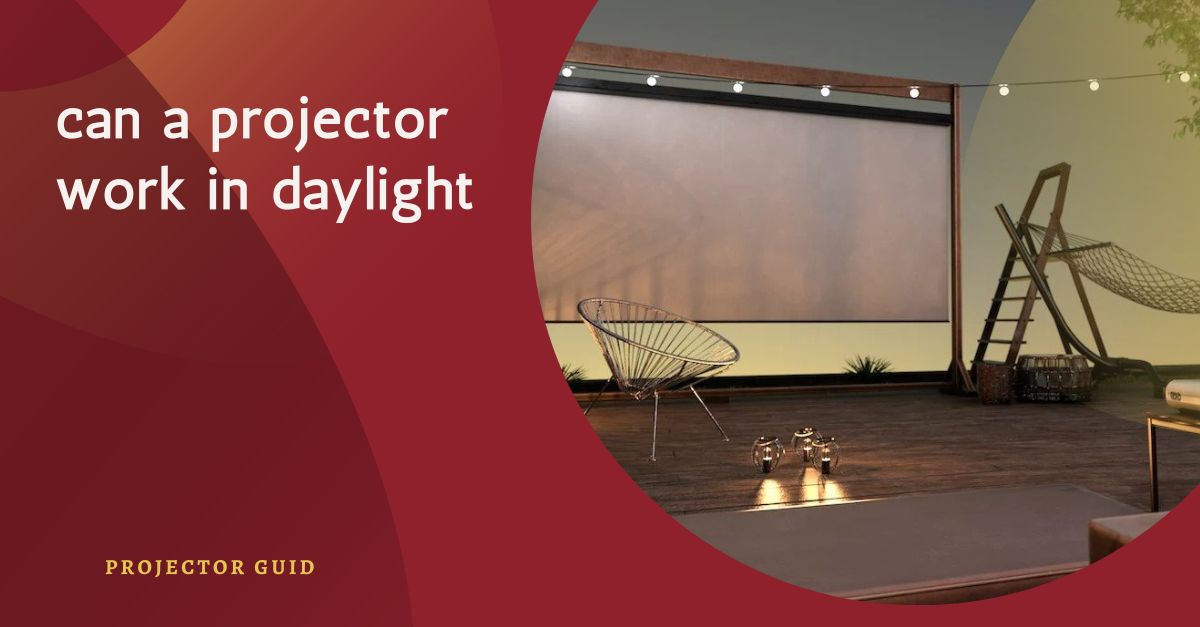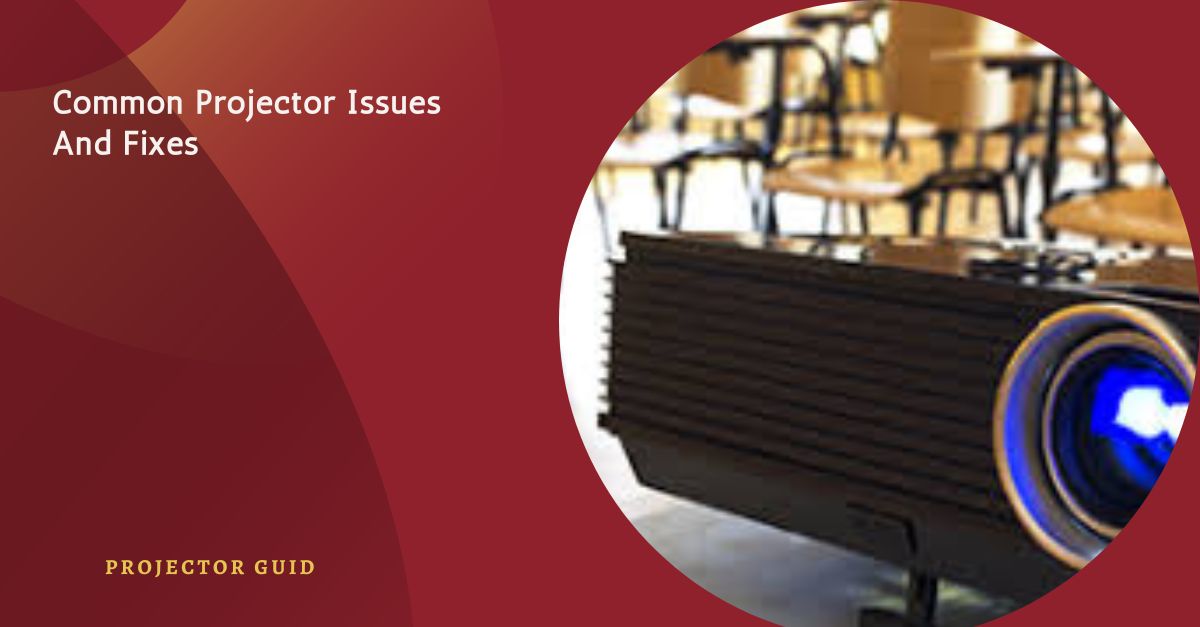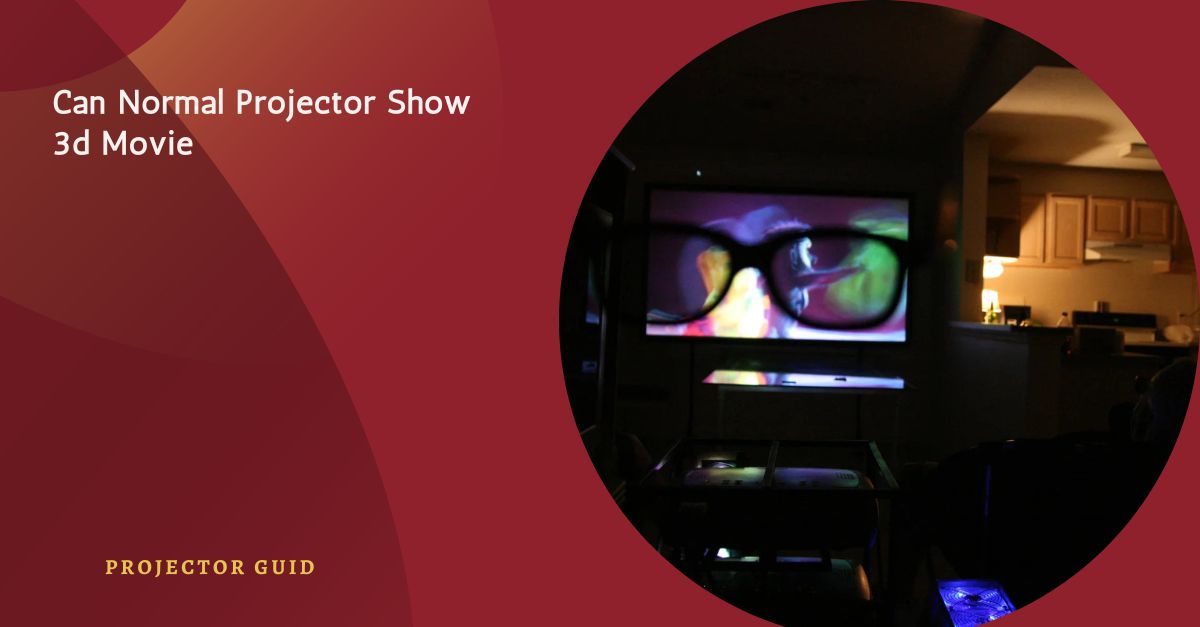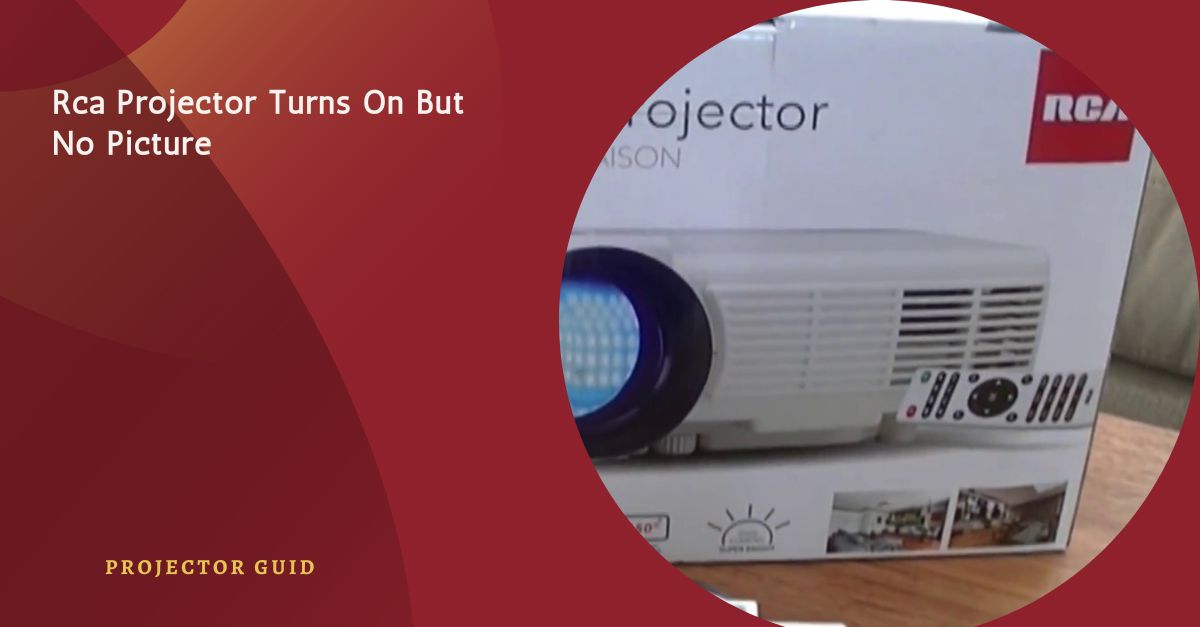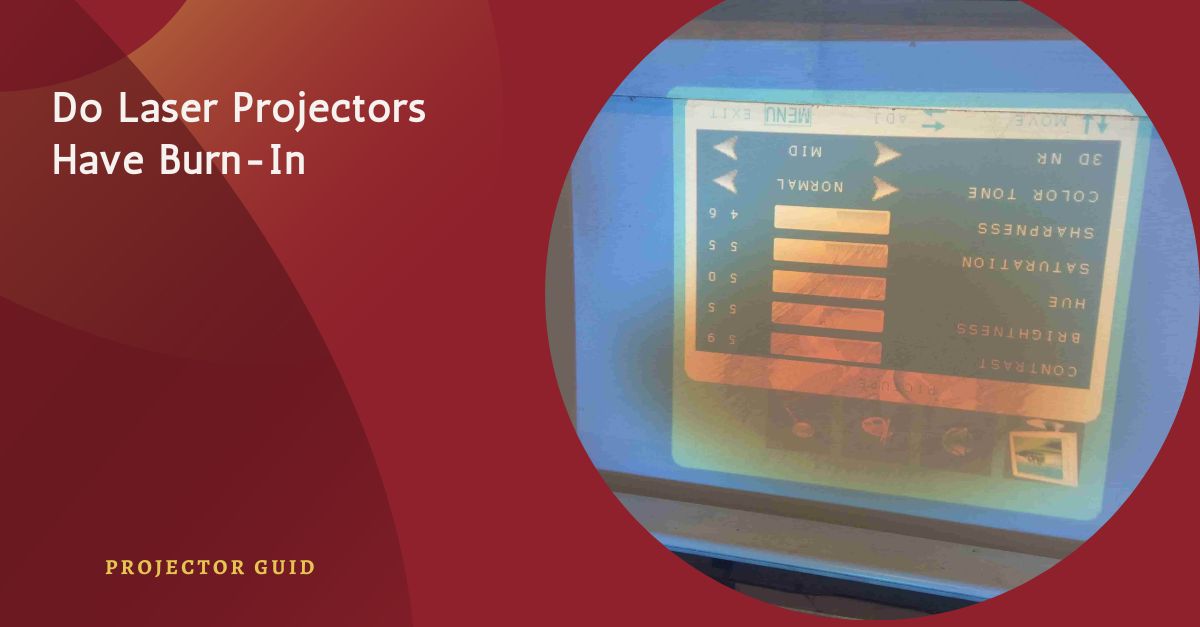I was worried my projector wouldn’t be bright enough during the day, but after getting one with 3,500 lumens, I was pleasantly surprised. The image stayed clear even with the curtains open, making my daytime presentations and movie nights much better.
Yes, it can, but you should get a projector with at least 4,000 lumens for the best results. More lumens mean a brighter and clearer image, which is especially important when it’s sunny outside.
We’ll look at whether a projector can work well in daylight. You’ll learn how bright your projector needs to be, simple tips for improving the picture, and easy ways to make sure your screen looks great even with sunlight.
Understanding Projector Brightness – impacts your viewing experience!

Projector brightness is measured in lumens, showing how much light it can produce. For dark indoor spaces, a projector with 2,000 to 3,000 lumens is usually enough. can a projector work in daylight.
But for bright rooms or outdoor use, you need at least 4,000 lumens to keep the picture clear and vivid. Higher brightness helps the projector handle extra light and keeps the image looking great.
What is the importance of lumens in understanding projector brightness?
Lumens measure how bright a projector is. The more lumens a projector has, the brighter the picture will be. For dark rooms, a projector with fewer lumens can work fine, but for bright places or outdoor use, you’ll need a projector with more lumens to keep the image clear and bright.
Choosing the right number of lumens helps avoid problems like dim or hard-to-see images. For dark areas, 2,000 to 3,000 lumens are usually enough. But for bright settings, like outdoors, look for a projector with at least 4,000 lumens to ensure the best picture quality.
What brightness (lumens) is needed for a projector to work in daylight?
can a projector work in daylight For a projector to work well in daylight, it should have a brightness of at least 4,000 lumens. This brightness level helps keep the image clear and visible even when there is a lot of natural light. Without enough lumens, the picture can look dim and hard to see in bright conditions.
Choosing a projector with 4,000 lumens or more is important for outdoor use or in well-lit rooms. Projectors with lower brightness might not handle daylight effectively, leading to a washed-out image. By selecting a high-lumen projector, you ensure a bright and clear display, making your presentations and movies enjoyable even during the day.
Can a projector with high lumens be used in a well-lit room?
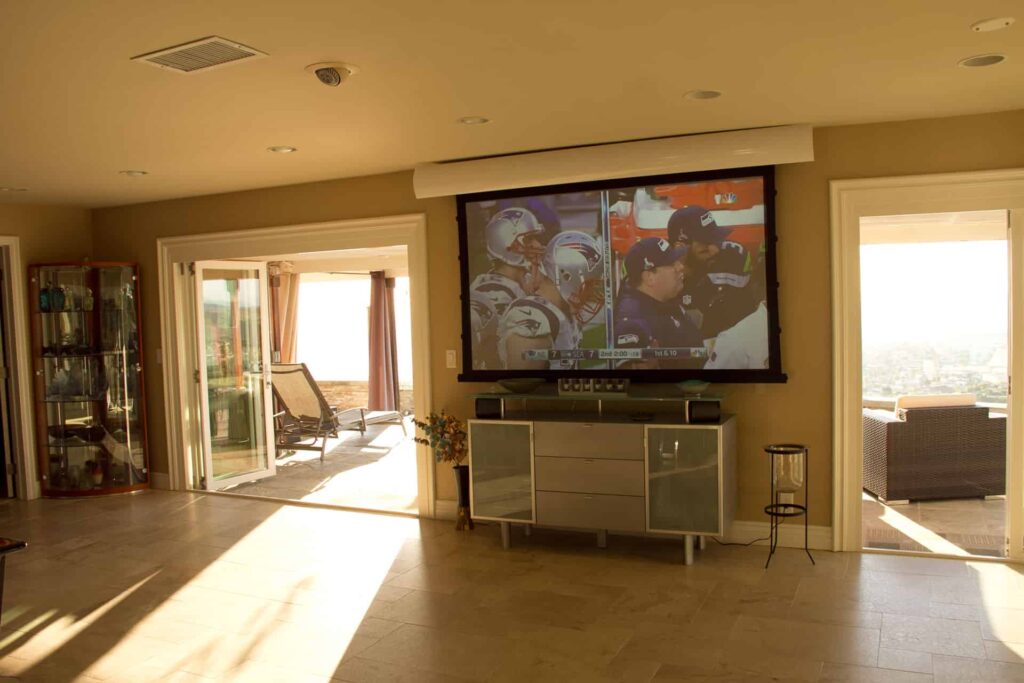
Yes, a projector with high lumens can work well in a well-lit room. can a projector work in daylight If a projector has 4,000 lumens or more, it’s bright enough to show a clear image even when there’s a lot of light. This is helpful for presentations or watching movies during the day when the room is naturally bright.
High-lumen projectors handle bright conditions better by keeping the picture vivid and sharp. They help reduce the effects of sunlight or room lights, so you don’t need to darken the room to see a clear image. This makes them great for both daytime and evening use in various lighting situations.
Can a low-lumen projector handle daylight conditions?
A low-lumen projector, with fewer than 3,000 lumens, doesn’t do well in daylight. Can a projector work in daylight The image can look dim and hard to see because it can’t compete with the brightness of natural light.
For clear pictures in daylight, you need a projector with at least 4,000 lumens. This brightness level ensures the image stays bright and sharp, even when it’s sunny outside.
How many lumens for a daytime projector?
For a projector to work well during the day, it should have at least 4,000 lumens. This brightness level helps keep the image clear and easy to see even when it’s sunny. Without enough lumens, the picture can look too dim and hard to view.
Projectors with 4,000 lumens or more are best for daylight use. They can handle bright light and keep the image bright and sharp, making them ideal for watching movies or giving presentations during the day.
Check your lumens:
Make sure your projector has enough lumens to handle daylight. For clear and bright images in sunny conditions, you should look for a projector with at least 4,000 lumens. Can a projector work in daylight Checking the lumens rating helps ensure that your projector will perform well, even when there’s a lot of natural light.
What’s the Best Projector for Outdoor Use in Daylight?
The Epson Home Cinema 5050UB is a great choice for outdoor use in daylight. It has up to 2,600 lumens, which helps keep the picture clear and bright even when it’s sunny. It’s a solid option for outdoor movies and presentations where you need a good image.
Another excellent option is the BenQ TK850, which has up to 3,000 lumens. This projector is made to work well in bright settings and provides sharp, colorful images. It’s ideal for watching movies or giving presentations during the day.
What features should you look for in a projector for daylight viewing?
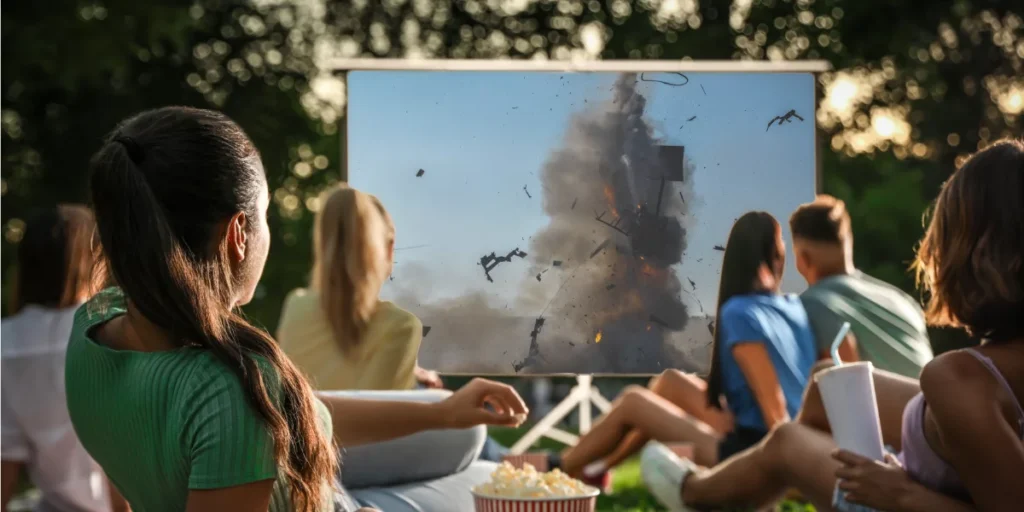
When picking a projector for daylight viewing, look for one with high brightness, at least 4,000 lumens. This brightness helps the picture stay clear and bright, even when it’s sunny outside. More lumens help the projector handle natural light better, so the image doesn’t look washed out.
- High Brightness: Look for at least 4,000 lumens to ensure a clear image in bright conditions.
- Good Color Accuracy: Ensures vibrant and true-to-life colors.
- High Contrast Ratio: Helps maintain image detail and clarity.
- High Resolution: Choose Full HD or 4K for sharp and detailed images.
- Ambient Light Handling: Features that reduce glare and improve visibility in sunlight.
How does ambient light impact the quality of a projector’s image?
Ambient light can affect how good a projector’s image looks. When there’s a lot of natural or room light, the image can become dim and hard to see. can a projector work in daylight The colors might look faded, and the picture might not be as clear, especially if the projector isn’t very bright.
To get a good image, it helps to use a projector with high brightness if the room has a lot of light. Also, you can use curtains or blinds to reduce the light in the room. This makes the picture sharper and more vivid, giving you a better viewing experience.
Check the weather forecast:
can a projector work in daylight: Before using your projector outside, check the weather forecast. This will help you avoid problems like rain or too much sunlight, which can make the image hard to see or damage the projector. Knowing the weather will help you plan better and ensure a smooth and enjoyable viewing experience.
Ambient Light and Screen Quality:
can a projector work in daylight: Ambient light can make your projector’s image look worse. If there’s too much light from windows or room lights, the picture can become dim and colors may fade. To get a better view, try to reduce the extra light or use a special screen that works well in bright conditions.
Room Conditions and Placement:
can a projector work in daylight: For the best picture from your projector, pay attention to the room conditions and where you put it. Try to keep the room dark by closing curtains or blinds to block out extra light. Place the projector where it’s not in direct sunlight and aim it at a flat, clear surface.
Which projector should I use in outdoor daylight?
For outdoor use in daylight, pick a projector with at least 4,000 lumens of brightness. can a projector work in daylight This helps the image stay bright and clear even when it’s sunny outside. Projectors like the BenQ TK850 or the Epson Home Cinema 5050UB are good choices because they are bright enough and show a clear picture in daylight.
Also, choose a projector with good color quality and contrast to make sure the image looks vibrant and sharp. A high resolution, like Full HD or 4K, will make the picture even clearer. These features together will help you enjoy a great viewing experience during outdoor events.
Pick the right time of day:
can a projector work in daylight: To get the best picture from your projector, choose the right time of day for your outdoor event. Early morning or late afternoon is best because the sun isn’t as bright and won’t wash out the image. Avoid midday when the sun is very strong, as it can make the picture hard to see. Picking the right time helps you get a clearer and better viewing experience.
Using Projectors for Presentations and Home Theater?
Using projectors for presentations is a great way to show information to many people. Choose a projector that is bright and has high resolution so text and images are clear and easy to see. For bright rooms, look for a projector with at least 4,000 lumens. Make sure to place it at the right distance from the screen to avoid a blurry image.
For home theater setups, pick a projector with good color and high resolution to get a bright and detailed picture.can a projector work in daylight A 4K projector will make movies and shows look great with vivid colors and sharp details. Using a dark room or a special projector screen will help you get the best image quality for a great viewing experience.
What Makes a Projector Work Well in Daylight?
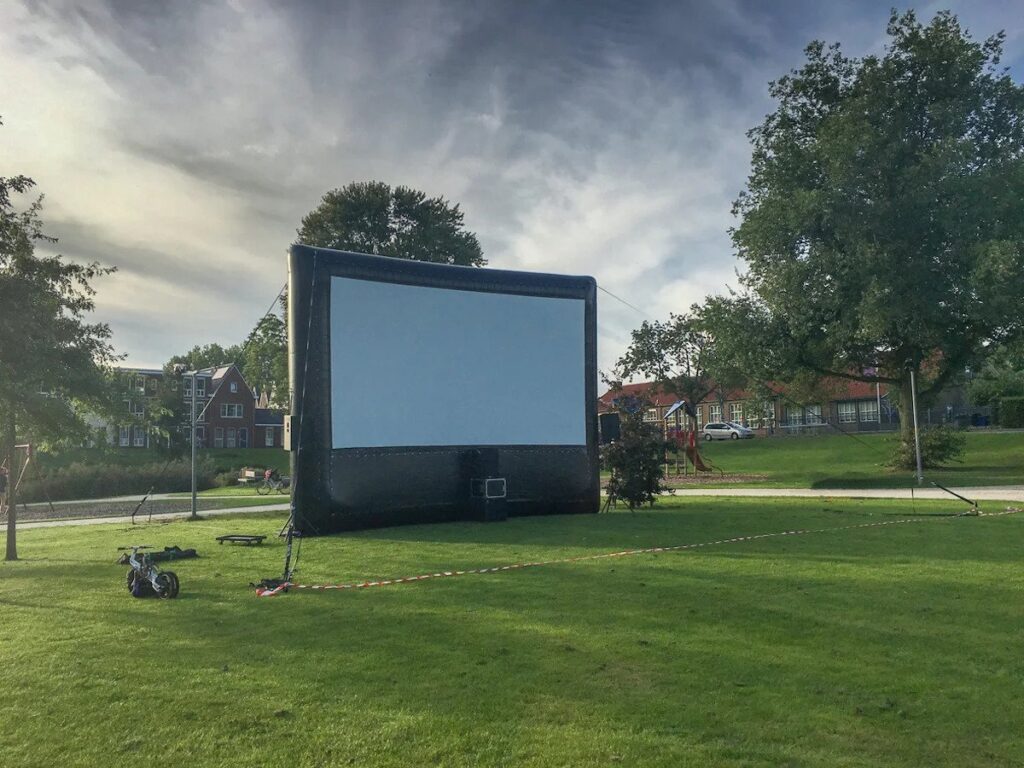
For a projector to work well in daylight, it needs to be very bright, with at least 4,000 lumens. This brightness helps the picture stay clear and easy to see even when it’s sunny. can a projector work in daylight More lumens mean the projector can handle the sunlight better and keep the image from looking washed out.
Also, the projector should have good color and contrast to make the picture look vivid and sharp. Using a special projector screen made for bright places can help improve the image quality by reflecting light better. This setup will give you a clearer and more enjoyable view during the day.
When is Daylight Projection Most Useful?
Daylight projection is most useful for outdoor events like movie nights or presentations held during the day. If you’re showing a movie in your backyard or giving a talk while it’s still light outside, a projector that works well in daylight will keep the image clear and easy to see. This way, you don’t have to wait for the dark to enjoy your event.
It’s also handy for bright indoor spaces, like conference rooms with lots of windows. A projector with high brightness will show a clear image even with sunlight coming in. can a projector work in daylight This makes it great for business meetings or classes where you need to present information during the day.
Why Does Daylight Affect Projector Performance?
Daylight affects projector performance because sunlight makes the room very bright. This extra light can make the projector’s image look dim and hard to see. The projector has a hard time competing with the strong sunlight, which makes the picture less clear.
To get a good image during the day, you need a projector that is very bright, with at least 4,000 lumens. can a projector work in daylight This helps the projector’s image stand out even when it’s sunny. You can also improve the picture by reducing sunlight with curtains or using a special screen designed for bright places.
Choosing projector screen type, size, material, and more:

- Screen Type: Decide between fixed-frame, retractable, or portable screens. Fixed-frame screens offer the best image quality and are ideal for permanent setups. Retractable screens are great for flexible use, while portable screens are best for on-the-go needs.
- Screen Size: Choose a size that fits your room or outdoor area. Larger screens provide a more immersive experience, but make sure the size is appropriate for the space and projector’s throw distance.
- Screen Material: Opt for materials that suit your viewing environment. For bright rooms, screens with high gain or special coatings can enhance brightness and contrast. Matte white screens work well in darker rooms, while gray screens can help improve contrast in both bright and dark settings.
- Gain: Gain measures how much light the screen reflects. Higher gain screens are better for bright environments as they reflect more light, while lower gain screens are suitable for darker rooms.
- Aspect Ratio: Match the screen’s aspect ratio to your projector’s resolution. Common ratios are 16:9 for HD and 4K content and 16:10 for presentations.
- Mounting Options: Consider how you will mount the screen. Fixed-frame screens need wall or ceiling mounting, while retractable and portable screens offer more flexibility.
FAQs:
What’s the best screen type for a small home theater?
For a small home theater, a fixed-frame screen is usually the best choice. It provides a smooth surface for optimal image quality and can be mounted permanently for a sleek, professional look.
How Can I Choose the Right Screen Size for My Room?
To determine the right screen size, measure the distance between the projector and the screen. For an immersive experience, the screen width should be about one-third to one-half of the viewing distance. Make sure the screen fits comfortably within your space without overwhelming it.
What material is best for a projector screen in a bright room?
For bright rooms, a high-gain screen with a reflective coating is ideal. It helps enhance brightness and contrast, making the image clearer even with ambient light. Screens with a silver or white high-gain coating are often recommended for such environments.
Can I use a projector screen outdoors?
Yes, but you should choose a screen specifically designed for outdoor use. These screens are usually weather-resistant and designed to handle various environmental conditions. Make sure it’s properly mounted and protected from elements like wind and rain.
What aspect ratio should I choose for a projector screen?
The aspect ratio should match your projector’s resolution. For standard HD and 4K content, a 16:9 aspect ratio is most common. For presentations or computer use, a 16:10 screen might be better. Ensure it aligns with the content you’ll view the most.
Conclusion:
Choosing the right projector screen is key to a great viewing experience. Consider the screen type, size, and material to match your needs. A screen with high brightness is good for bright rooms, while a high-resolution screen improves detail.
By picking the right screen, you’ll enjoy clear and vivid images whether you’re watching movies, giving presentations, or having a fun outdoor event.
Read More:
Can A Projector Overheat – Extend Your Projector’s Life!
Can A Projector Play 3d – Stay Updated With 3d Tech Innovations!
